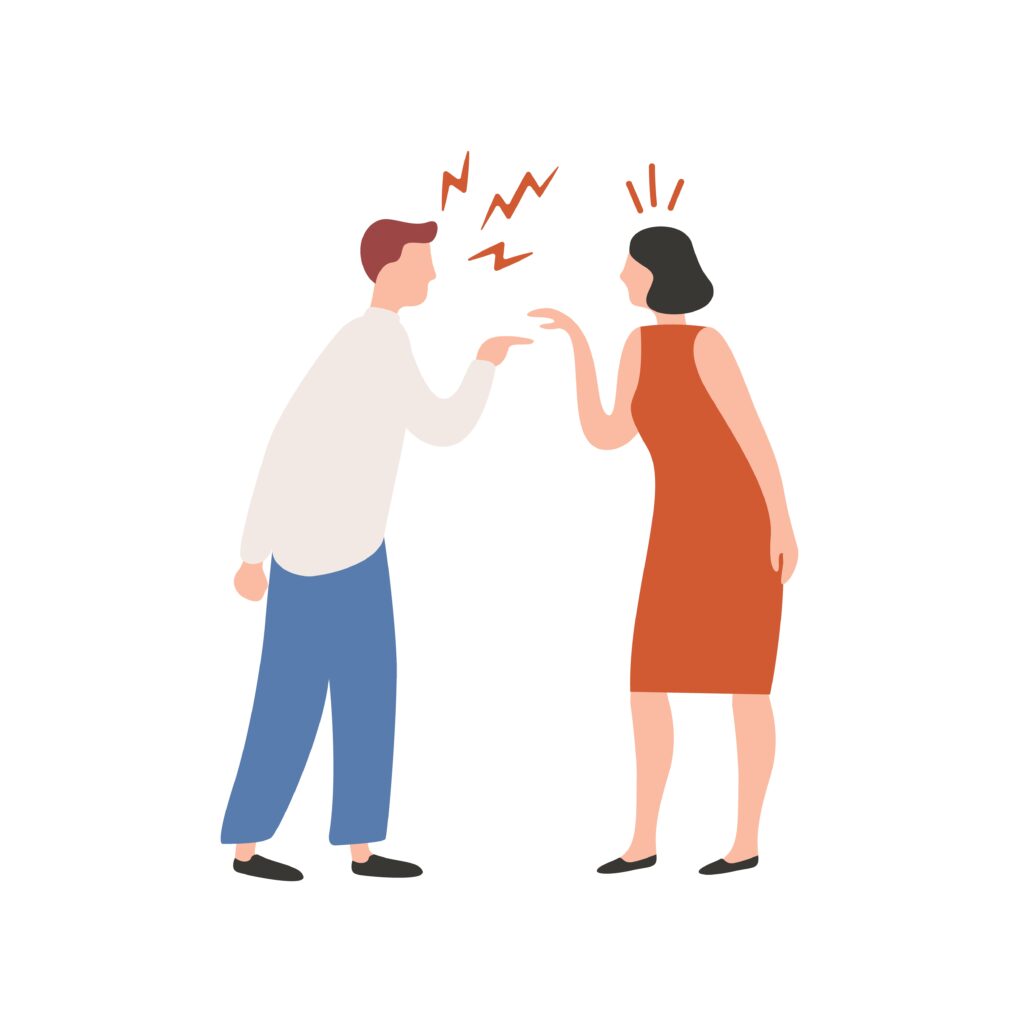Abusive relationships can be incredibly difficult to escape, and it is important to understand the cycle of abuse in order to understand why victims often stay in these relationships. The cycle of abuse is a repetitive pattern of behavior that includes three main stages: tension-building, incident, and reconciliation.
Tension-Building Stage

The tension-building stage is characterized by a gradual increase in tension and conflict in the relationship. This stage can last anywhere from a few hours to several months, and it is during this time that the abuser may begin to feel increasingly anxious, stressed, and afraid.
Incident Stage
The incident stage is characterized by a violent or abusive outburst from the abuser. This stage can last anywhere from a few minutes to several hours, and it is during this time that the victim may experience physical, emotional, or psychological abuse.
Reconciliation Stage
The reconciliation stage is characterized by a period of remorse and apologies from the abuser, who may promise to change and to never abuse the victim again. This stage is often the most difficult for the victim to leave, as the abuser may appear sincere in their promises and may offer gifts or affection as a way of making up for the abuse.
Breaking the Cycle of Abuse
Breaking the cycle of abuse requires a strong understanding of the cycle and the behaviors that are associated with it. It also requires the victim to have a strong support system, including friends and family who can provide emotional support and help the victim escape the relationship.
The first step in breaking the cycle of abuse is to acknowledge that the relationship is abusive and that it is affecting the victim’s physical, emotional, and psychological well-being. Once the victim has acknowledged the abuse, they can then begin to take steps to escape the relationship and to protect themselves from further abuse.
One of the most important things that a victim can do is to seek help from a trusted friend, family member, or professional. This person can provide emotional support and help the victim develop a plan for leaving the relationship and protecting themselves from further abuse.
Protecting Yourself from Further Abuse
It is important to understand that leaving an abusive relationship is just the first step in protecting yourself from further abuse. In order to truly protect yourself, you must also take steps to ensure that the abuser does not have access to you and that you are not at risk of being harmed. This may include obtaining a restraining order, changing your phone number and email address, and securing a safe place to stay.
How do you advise someone who has been abused?

If someone has confided in you that they have been abused, it is important to listen to them and believe them. Let them know that what they have experienced is not their fault and that you are there to support them.
It is also important to provide them with practical resources and information, such as a local domestic violence hotline or a local support group. Encourage them to seek professional help, such as a therapist or a domestic violence advocate, who can help them understand their options and develop a plan for their safety.
Finally, it is crucial to respect their decisions and to support them in whatever way they feel is best for their situation. This may mean helping them leave the relationship, or it may mean supporting them in staying and working to improve it.
What to say to someone who is an abuser?
If someone has confided in you that they are an abuser, it is important to approach the situation with empathy and understanding. Let them know that their behavior is not okay and that there are resources available to help them change.
Encourage them to seek professional help, such as a therapist who specializes in anger management or domestic violence. It is important to emphasize that change is possible and that they have the power to make positive changes in their relationships and their lives.
How can I help someone who is emotionally abusive?
If someone is in an emotionally abusive relationship, it is important to listen to them and to believe them. Let them know that their experiences are valid and that they are not alone.
Encourage them to seek professional help, such as a therapist who specializes in emotional abuse or a domestic violence advocate. Provide them with resources and information, such as a local domestic violence hotline or a local support group.
It is also important to set boundaries and to communicate that the abuse is not acceptable. This may mean distancing yourself from the abuser or standing up to them when they engage in abusive behavior.
What do you say to someone who is emotionally abusive?
If you are dealing with someone who is emotionally abusive, it is important to approach the situation with care and empathy. Let them know that their behavior is not okay and that it is impacting those around them.
Encourage them to seek professional help, such as a therapist who specializes in emotional abuse or anger management. It is important to emphasize that change is possible and that they have the power to make positive changes in their relationships and their lives.
How do you help someone in a toxic relationship?
If someone is in a toxic relationship, it is important to listen to them and to believe them. Let them know that their experiences are valid and that they are not alone.
Encourage them to seek professional help, such as a therapist or a domestic violence advocate. Provide them with resources and information, such as a local domestic violence hotline or a local support group.
It is also important to set boundaries and to communicate that the toxic behavior is not acceptable. This may mean distancing yourself from the abuser or standing up to them when they engage in toxic behavior.
Moving Forward
Breaking the cycle of abuse can be a long and difficult journey, but it is important to remember that you are not alone. There are resources and support available to help you escape the relationship and to rebuild your life. Whether you are seeking help from a friend, family member, or professional, it is important to take that first step and to begin the process of healing and recovery.


